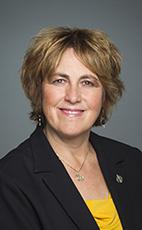moved for leave to introduce Bill C-296, An Act respecting the establishment and award of a Defence of Canada Medal (1946-1989).
Mr. Speaker, the pandemic has offered us a view into other moments when Canadians came together to ward off a common foe. One of those was the Cold War, which lasted from 1946 until the dismantling of the Berlin Wall in 1989. That event signalled an end to the arms race and the anxiety that accompanied the period.
In order to properly acknowledge the work and sacrifice of those who protected us from within our borders during the Cold War, I am introducing an act respecting the establishment and award of a defence of Canada medal for the men and women who served Canada during the Cold War. These individuals served in the protection of Canada from threats posed by countries behind the Iron Curtain.
These Canadians were trained and prepared to defend their country by any means and, fortunately, they never had to intervene on our soil. This medal will be awarded to those who served in the regular force, the reserves, police organizations, the Emergency Measures Organization and civilian assistance organizations.
This act represents the vision of an Algoma—Manitoulin—Kapuskasing resident, retired Captain Ulrich Krings, and has widespread support across the country, especially from those who worked so hard to keep us safe and prepared during those unsettling times.
I am pleased that my colleague from North Island—Powell River, who is also the NDP critic for veterans affairs, is seconding my bill.
(Motions deemed adopted, bill read the first time and printed)

